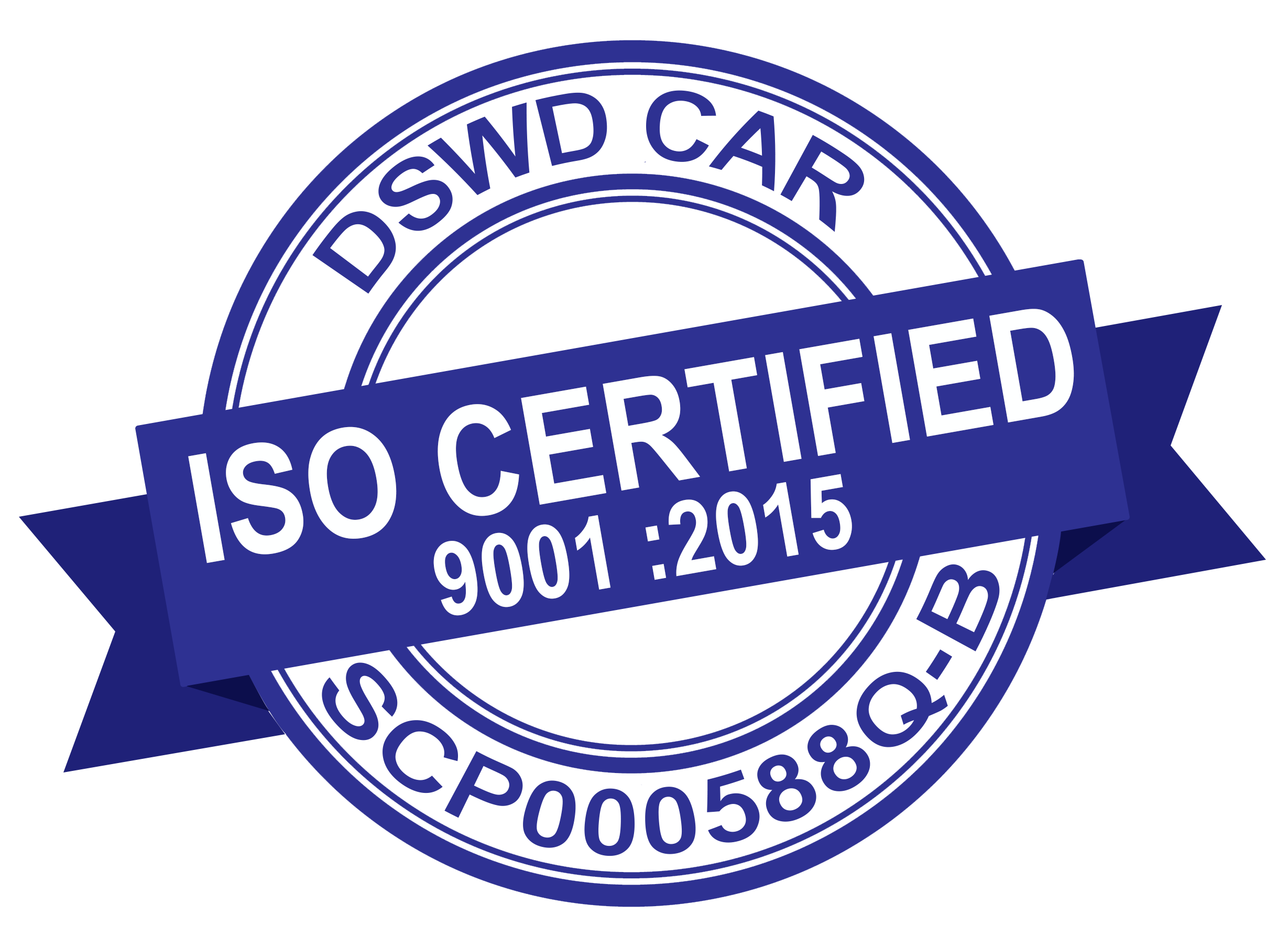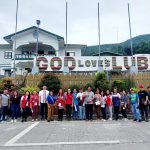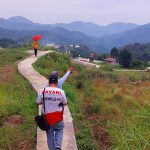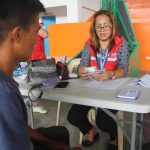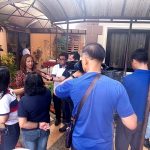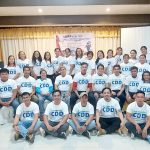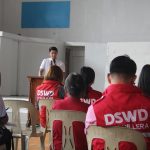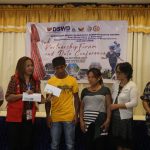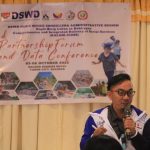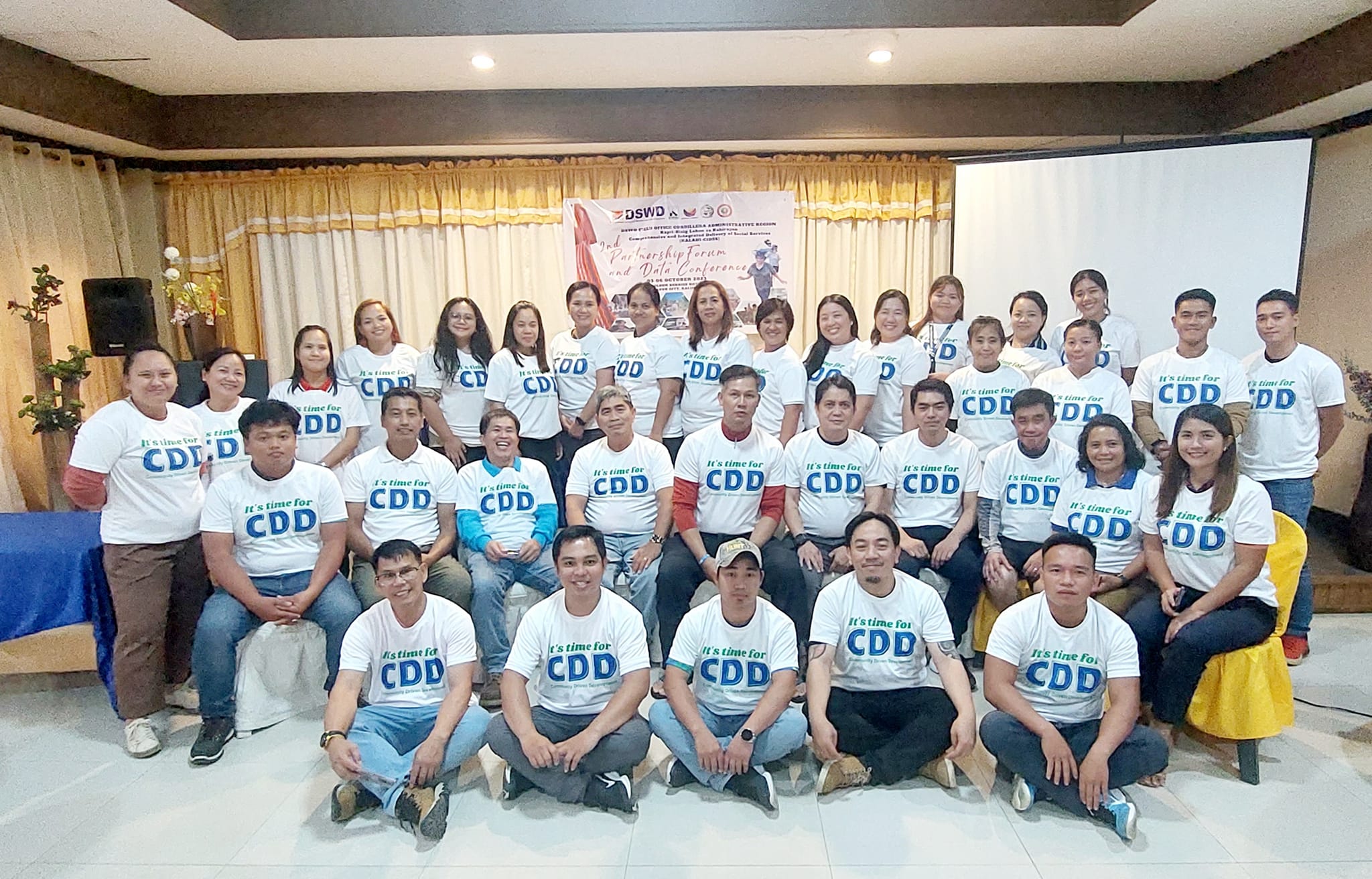
TABUK CITY, KALINGA- As part of the agency’s goal to strengthen partnerships in the advancement of communities, the Department of Social Welfare and Development Field Office Cordillera Administrative Region has conducted the Second Partnership Forum and Data Conference together with the different members of Civil Society Organizations, National Government Agencies, Academe, Provincial, Municipal and Barangay Local Government and Media at Tabuk City, Kalinga on 03 to 06, 2023.
DSWD Field Office CAR Regional Director Leo L. Quintilla in his message emphasized the critical role of the communities and partners in the inclusive implementation of Community Driven Development (CDD) in the region.
“With the activity, the Department is able to provide updates and sharing of experiences regarding the DSWD and the Kapit-Bisig Laban sa Kahirapan-Comprehensive and Integrated Development of Social Services (KALAHI-CIDSS) program successes, processes and objective. Through this convergence, we are turning towards shaping the advancement of our communities today and for the next generation,” he added.
Director Quintilla stated that through KALAHI-CIDSS, convergence thrives in the region as it is centered towards empowering the community to have an active participation towards the development of their community. “The program seeks not only to complete the project the community choose, but it seeks to develop capacity building, skills and to empower the community to be resilient and resourceful through the technical assistance of DSWD personnel. Also through multi-sector approach, the program engages not only the community but the LGU and Barangay LGU as they provide their local counterpart,” Dir. Quintilla said.
Representing Kalinga Governor James S. Edduba, Kalinga Provincial Administrator Teddy E. Gullay in his message lauded KALAHI-CIDSS for its transparency from the beginning and end of the implementation of the program. “This is one of the programs that address: Anya kadi kayat ti umili? (What does the community want?).”
Gullay also highlighted the presence of ‘Binnadang’ or unity alive among participants of the program adding there is a formation of audit team, inventory, inspectorate team, bids and committee in the barangay level trained by DSWD in the social preparation.
Coinciding with the activity, four families from Tabuk, Lubuagan and Tinglayan in the province of Kalinga received Livelihood Settlement Grant under the Balik Probinsiya, Bagong Pag-asa of the DSWD FOCAR KALAHI-CIDSS Program with a total cost of assistance amounting to PHP 185,000.
Morever, 159 beneficiaries from all municipalities of Kalinga received PHP 3,800 each under the Kapangyarihan at Kaunlaran sa Barangay – Cash-For -Work Community Driven Development (KKB-CFW-CDD) of KALAHI-CIDSS with a total cost of assistance amounting to PHP 604,200. The beneficiaries worked on the following approved project: clean-up drive along government public places, gardening and tree planting, and cleaning and reclogging of canals.
The payout was conducted with the members of the Regional Program Management Office, SWAD-Kalinga, Area Coordinating Teams of Kalinga, Provincial Local Government Unit, LGUs of Kalinga and BLGU.
Also part of the activity is the sharing of updates and status of DSWD programs and services including the: KALAHI-CIDSS, Pantawid Pamilya Pilipino Program or 4Ps, Sustainable Livelihood Program (SLP), Enhanced Partnership Against Hunger and Poverty (EPAHP), and Risk Resiliency Program-Climate Change Adaptation and Mitigation-Disaster Risk Reduction (RRP-CCAM-DRR).
This was followed by the conduct of the field monitoring visit to the KALAHI-CIDSS implementing towns of Lubuagan and Rizal in Kalinga. The visit includes the ongoing and completed sub-projects and community engagement through group discussions.
KALAHI-CIDSS is one of the poverty alleviation program of the Government that is being implemented by the DSWD since 2003.For two decades, the program uses the CDD approach which enables the community to have the decision-making power and the control over the resources in their community in order to address the pressing challenges and needs in their barangays. In the Cordillera region, it is being implemented in the 70 municipalities out of the 77 municipalities.
In KALAHI-CIDSS, communities in target municipalities are empowered to achieve improved access to basic services and to participate in more inclusive local planning, budgeting, procurement, implementation, project management, operations and maintenance. # DSWD FIELD OFFICE CAR, SOCIAL MARKETING UNIT, LAUREN A. ALIMONDO



